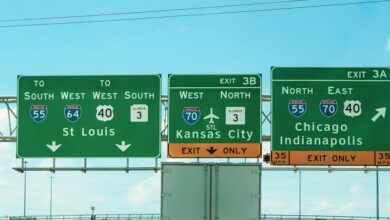Eroding donor privacy unites right and left against states
The threat to donor privacy is continuing despite a U.S. Supreme Court ruling two years ago that many thought had ended it once and for all.
Proposals introduced in more than a dozen states this year would chip away at the July 2021 decision in Americans for Prosperity v. Bonta. In that ruling, a 6-3 majority of the high court rejected California Attorney General Rob Bonta’s attempts to compel nonprofits to turn over lists of major donors as a condition of renewing tax-exempt registration in California.
Although nonprofits have long been required to report donor information on Schedule B (Schedule of Contributors) of the federal Form 990, the information has always been treated as sensitive and confidential except for rare purposes of law enforcement. In the case of California, the court found the disclosure requirement not only served no tax purpose but violated donors’ First Amendment rights by subjecting them to potentially speech-chilling threats of intimidation and violence as a result of their private information entering the public domain.
“(No) fewer than 19 states have considered legislation that would compel diverse and even apolitical organizations to share private supporter information. They range from blue states to purple states to red states, with at least eight bills still pending,” wrote Christie Herrera, interim president and CEO of the Philanthropy Roundtable in Washington, D.C., in a National Review article.
The states include California, where sponsors of recently introduced legislation want to mandate disclosure of individuals who fund ballot initiatives by social advocacy nonprofits as part of a crackdown on so-called “dark money.” Such a measure has already become law in Arizona, where voters last November approved a measure to require any group spending more than $25,000 on a local issue or $50,000 on a state issue to disclose donors’ names and addresses.
“This mandate goes beyond donations to political campaigns, which must be disclosed under longstanding federal law,” writes Herrera. “Instead, it applies to groups that advocate for policies – everything from immigration to school choice to tax cuts to abortion, either for or against.”
Multiple organizations have since filed lawsuits challenging the constitutionality of the Arizona law. Some now want Congress to step in by enacting federal legislation to codify the First Amendment rights recognized by the U.S. Supreme Court in its ruling two years ago and prevent any further efforts at the state level to undermine them.
Mark Micali, vice president of government affairs for The Nonprofit Alliance, told The NonProfit Times he is unaware of any current proposals to this effect at the federal level. Such efforts could also face an uphill climb in the current politically divided Congress, where lawmakers on both sides have expressed alarm about the growing influence of “dark money.”
However, a group of organizations including the NAACP, ACLU, Southern Poverty Law Center and Human Rights Campaign on the Left to the Leadership Institute and Americans United for Life on the Right have supported the Supreme Court’s findings in Bonta.
Micali, for his part, suggested state efforts to undermine the Bonta ruling would likely face strong legal pushback. “The Bonta decision was huge, and the Supreme Court spoke very clearly,” he said.
Herrera, however, is concerned the protections afforded in that case could begin to wilt under pressure from state lawmakers if additional action isn’t soon taken to shore them up. “In the two years since Bonta, the state assault on free speech has only gotten worse,” she wrote. “Activists are already laying the groundwork to force donor disclosure in dozens of states in the next few years. Every American’s First Amendment rights won’t be safe until this nationwide campaign is finally and fully stopped.”
This article was originally published at The NonProfit Times.








